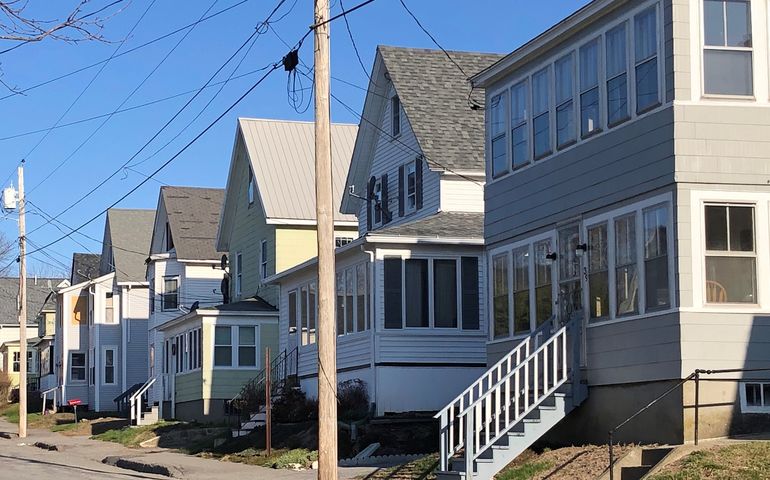Maine evictions are down, but tenants are falling farther behind, study shows
 Photo / Maureen Milliken
Evictions are down, but pressure on landlords is growing as more tenants fall behind as they wait for federal rent relief, a new study by the Maine Coalition for Affordable Housing found.
Photo / Maureen Milliken
Evictions are down, but pressure on landlords is growing as more tenants fall behind as they wait for federal rent relief, a new study by the Maine Coalition for Affordable Housing found.
Maine eviction filings are down since the beginning of the pandemic, but pressure on landlords is building as tenants fall behind and rent relief approved by Congress in December remains stalled, new data from the Maine Affordable Housing Coalition shows.
Renters and landlords alike continue to wait for the U.S. Treasury Department to finalize program rules for desperately needed rent relief approved by Congress in late December, the coalition said in a news release. No rent relief has been available to Maine tenants since the program was paused on Dec. 31, and it's not clear when the Treasury Department will act.
A study in December found that Maine renters are at the lowest risk in the nation to be evicted, largely because of state programs administered with CARES Act funding and through MaineHousing.
The data, collected from Maine’s seven busiest eviction courts, shows that eviction filings have decreased significantly since the onset of the COVID-19 pandemic. But landlords say tenants are falling farther behind and renters continue to be disadvantaged by a massive mismatch in legal representation in Maine’s eviction courts.
The coalition compiled information for the report from more than 2,200 eviction filings and interviews with more than 60 working renter households. The report is an update to one in September, and drew data from the eviction courts in Lewiston, Portland, Bangor, Biddeford, Augusta, Waterville and Springvale, where 69% of Maine’s overall eviction caseload between fiscal years 2015-20 were filed.
Key takeaways of the study are:
- Eviction filings decreased significantly, beginning in the second week of March, when the state and local states of emergency were declared.
- The stated causes of eviction filings have shifted during the pandemic period. Before the pandemic "nonpayment of rent" was the top reason given for eviction. Nonpayment is now protected by eviction moratoriums.
- Arrearages and months past due claimed in nonpayment cases have increased significantly during the pandemic period, up 60% as Mainers lost jobs or wages were cut because of the pandemic.
- Eviction case outcomes have shifted as more cases are being dismissed, likely because of pandemic-spurred changes in court procedures.
- Tenants continue to lag far behind landlords in legal representation, and case outcomes continue to strongly correlate with this imbalance. Tenants with an attorney are 85% more likely to avoid an eviction judgment than those who lacked representation.
MAHC also released new data and narratives from interviews with more than 60 working renter households from across the state, revealing widespread challenges for people trying to avoid eviction as they navigate the pandemic with reduced or eliminated earned income. While most households have been able to keep up with their rent, the interviews revealed that they are often doing so by skipping other bills, taking on additional debt and spending down their modest savings.
“No one should lose their home in the middle of a public health emergency,” said Greg Payne, director of the Maine Affordable Housing Coalition. “The efficient deployment of federal rent relief dollars must happen immediately, to protect both vulnerable renters and the landlords who have their own bills to pay.”
MAHC plans to work with state Sen. Anne Carney, D-Cape Elizabeth, House Speaker Ryan Fecteau, D-Biddeford, and others in the Maine Legislature to pass legislation that would prevent avoidable evictions and expand legal representation for renters, the release said.
MAHC is a coalition of more than 130 developers, public housing authorities, contractors, design/engineering professionals, investors, housing and service providers, advocates and others working to increase and improve the supply of quality, affordable housing in Maine.










0 Comments